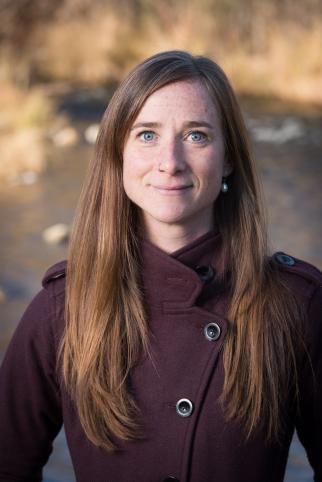Dr. Bronwyn Hancock wraps term on federal Expert Panel on Climate Change Adaptation and Resilience Results
 WHITEHORSE—Last week the Expert Panel on Climate Change Adaptation and Resilience Results delivered their final report, Measuring Progress on Adaptation and Climate Resilience: Recommendations to the Government of Canada to Dr . Stephen Lucas, federal Deputy Minister of Environment and Climate Change.
WHITEHORSE—Last week the Expert Panel on Climate Change Adaptation and Resilience Results delivered their final report, Measuring Progress on Adaptation and Climate Resilience: Recommendations to the Government of Canada to Dr . Stephen Lucas, federal Deputy Minister of Environment and Climate Change.
Following an ambitious, eight-month process of discussion and deliberation, the Expert Panel has proposed a suite of 54 indicators intended to identify and measure key elements that would reflect progress on adaptation and climate resilience in Canada.
The Expert Panel also identified a sub-set of 19 indicators from within the larger set that could serve as a starting point for future discussion and details a sustainable approach to mobilizing the proposed indicators through a sustainable, robust, broadly applicable monitoring and evaluation framework.
The Expert panel also issued a call to action to all levels of Canadian government to work in concert with Indigenous Peoples, the private sector, and civil society to build on this work and apply it to their own specific circumstances.
Dr. Bronwyn Hancock, Associate Vice President of Research Development at Yukon College, was one of four academics on the panel, alongside representatives from Ryerson University, University of New Brunswick and Simon Fraser University.
“I encourage Yukoners to read the report and consider how we can each contribute to progress on adaptation and climate resilience here in the North,” said Hancock.
“While all panelists were involved in the development of all indicators in the final report, I was most heavily involved in the development of indicators supporting particularly vulnerable regions, including Canada’s North, remote and coastal regions. For this region, we developed indicators to measure the resilience of vulnerable regions to slow-onset climate events, like permafrost thaw and coastal erosion.”
“It was particularly important for me to see Indigenous perspectives reflected. Representatives from the Assembly of First Nations, Inuvialuit Regional Corporation and Métis National Council played an instrumental role, and together we worked to integrate indicators around access to traditional foods, the ability to practice traditional ways of life, the protection of cultural assets including spiritual sites and traditional food and medicine gathering areas, and the integration of indigenous and local knowledge in measuring progress on indicators.”
Overall, the panel consisted of 22 members, from academia, the private sector, government, non-government, a youth organization, and Indigenous organizations and governments.
Upon release of the Expert panel’s final report, Minister McKenna issued the following statement:
"Taking action to help Canadians adapt to climate change is a priority for the Government of Canada. The ability to adapt, prepare, and be resilient in the face of a changing climate helps protect the health, well-being, and prosperity of Canadians.
“I sincerely thank the Expert Panel members for their time, energy, and dedication to this work. The information gathered during this process will be invaluable as we move toward a better understanding of how to measure Canada’s progress on adaptation and climate resilience.
“Enhancing our understanding of how best to measure Canada’s progress on climate change adaptation will support the Government’s efforts to help Canadians prepare for the impacts of a changing climate. We are committed to working collaboratively with provincial and territorial governments to identify appropriate ways to measure progress under Canada’s climate plan, including on adaptation and climate resilience.”
The Northern Climate ExChange program at Yukon College is leading the study the impacts and adaptation opportunities associated with climate change in Yukon and northern Canada. Hancock and her team work on topics ranging from permafrost to water to food security to community-based adaptation planning.
The impacts of climate change on society and environment will be one of the three key research and program pillars of the future Yukon University alongside Indigenous self-determination and governance and sustainable resource development and innovation.
For more information, please contact: